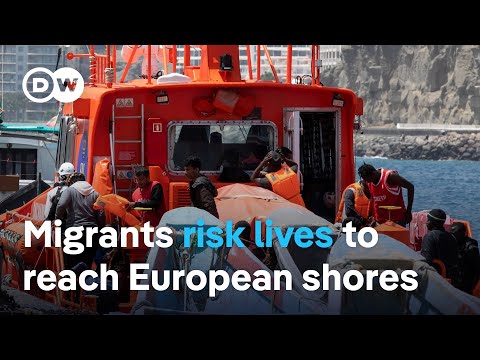The European Union has been implementing border externalization policies, including signing comprehensive agreements with non-EU countries to curb so-called irregular migration to Europe. . In July 2023, EU Commissioner Ursula von der Leyen along with Italian Prime Minister Georgia Meloni and former Dutch Prime Minister Mark Rutte – all representing a newly devised “Team Europe” strategy – initiated an EU-Tunisia deal with Tunisian President Kais Saied, who has notoriously encouraged hate crimes against asylum-seekers from other parts of Africa, notably sub-Saharan Africans. The implementation of the Commission’s over €105 million EU-Tunisia deal, sparked backlash from the EU’s High Representative for Foreign Affairs Josep Borrell and civil society actors alike, for its lack of transparency and safeguarding of fundamental rights. Since then, the Commission has begun negotiating similar deals with Egypt, Morocco, and Mauritania.
Due to the lack of existing legal channels, many migrants and asylum-seekers embark on extremely dangerous journeys along various routes to reach European Territory. These paths include the Western Balkan route, the Eastern and Central Mediterranean Routes, and the Atlantic Route. The past year has seen the Atlantic Route become more active, with migrants increasingly departing from places in West Africa such as Senegal and Mauritania and risking their lives to reach the Canary Islands. According to Frontex, the European Border and Coast Guard Agency, more than 13,500 individuals departed for the Canary Islands between January and March 2024.
#migration #canaryislands #mauritania
Subscribe: https://www.youtube.com/user/deutschewelleenglish?sub_confirmation=1
For more news go to: http://www.dw.com/en/
Follow DW on social media:
►Facebook: https://www.facebook.com/deutschewellenews/
►Twitter: https://twitter.com/dwnews
►Instagram: https://www.instagram.com/dwnews
►Twitch: https://www.twitch.tv/dwnews_hangout
Für Videos in deutscher Sprache besuchen Sie: https://www.youtube.com/dwdeutsch





